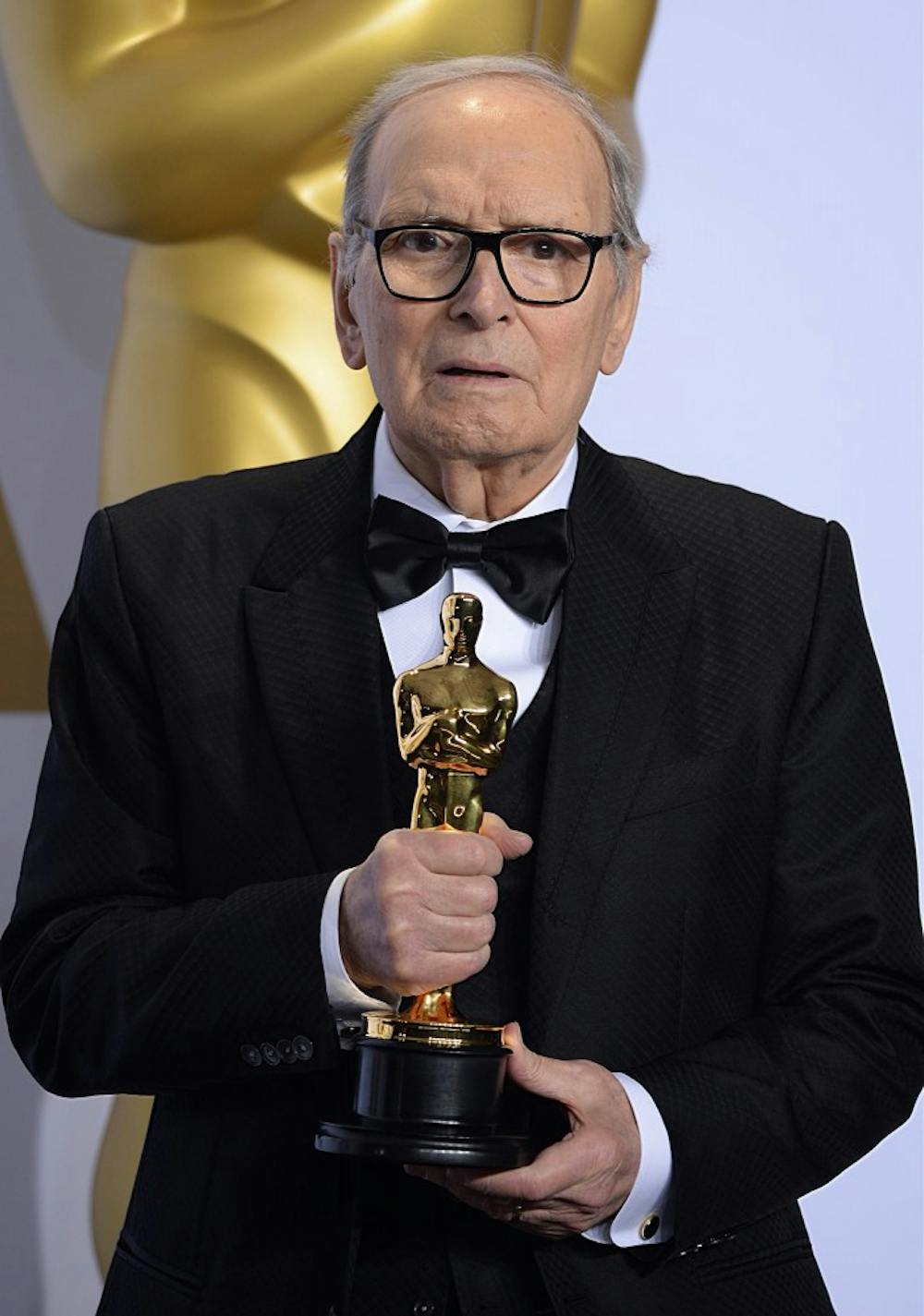Here’s a thought: Ennio Morricone could be the greatest composer of all time.
When I say “the greatest,” I mean even when compared to Beethoven, Mozart and Tchaikovsky, Morricone may just surpass all of them.
I truly believe there is something about the Italian film composer, who is responsible for the masterful scorings of films like “The Good, the Bad and the Ugly,” “Once Upon a Time in America,” “The Untouchables” and most recently “The Hateful Eight,” that is truly one-of-a-kind.
I can hear all the music theorists gasping in horror as they clutch their hearts.
How dare he? How can some modern film composer ever compare to the greats?
You know, because you have to be dead in order to be considered the best at anything.
I respectfully dissent. While I am a classical music enthusiast, especially in regards to the aforementioned composers, I never once considered myself above the music scores in any way.
Why should anyone? If music is truly art, then we should base our judgements on it from the colors it creates, not the palette.
Think about it: In his 70 years of activity as a composer, Morricone has composed and arranged scores for more than 500 film and television productions, sold more than 70 million records and received 72 awards and 68 nominations for his work.
This man is 87 years old. If you saw the Oscars on Sunday, you saw he was unable to walk on the stage by himself, yet just last year, he somehow managed to compose one of his greatest achievements: the score for “The Hateful Eight.”
Speaking of the Oscars, let’s talk for a second about how, after all this time, this is still the first Oscar Morricone ever received for any of his work.
He is officially the oldest person in history to win an Oscar.
Let’s backtrack here a second. The man behind the whistle in “The Good, the Bad and the Ugly,” the most famous theme in cinematic history along with the themes in “Psycho” and “Jaws,” was unable to snag any sort of reward from the Academy until last Sunday?
It’s not like the option wasn’t plausible for Morricone. The Academy has been rewarding musical scoring since 1934, 12 years before he began composing and 27 years before his film scoring debut, “Il federale.”
If that’s not bad enough, he has only received six nominations from the Academy throughout his entire career. That’s only about one percent of his entire work.
Suddenly, Leonardo DiCaprio’s one win out of six nominations for a span of 25 years doesn’t look too bad.
Granted, the majority of the films Morricone scored were Italian, so they diverted from the Academy’s narrow criteria for consideration. However, he definitely composed for more than six English-spoken films.
Besides “The Hateful Eight,” the only score nominated which people may even heard of was “The Untouchables.” This excludes all of the “Dollars Trilogy,” “Once Upon a Time in the West,” “Once Upon a Time in America,” “The Thing” and “The Battle of Algiers.”
These are all scores that are not only some of the best film compositions ever, but some of the best music ever composed.
I can’t say with total confidence Morricone ever composed pieces that even compare to Mozart’s “Requiem” or Bach’s “Air.” Except one piece, of course: “The Ecstasy of Gold” from “The Good, the Bad and the Ugly.”
With perfect blend of overplay and underplay, Morricone somehow managed to craft a musical masterpiece which will be remembered in many years to come as one of the greatest pieces of scoring of the 20th century.
To top it off, you have the majestic image of the graveyard Eli Wallach’s character is roaming through in the film paired with the surreal vocals of Edda Dell’Orso, which makes for one of the most enchanting images of 1960s film.
In all honesty, his only real competitors as a composer are Beethoven and Joe Hisaishi, the latter primarily associated for his work with Japanese animator Hayao Miyazaki.
Even master composers like Danny Elfman, Hans Zimmer and Clint Mansell have not seemed to reach Morricone’s level of expertise.
Why should we be surprised by this? His music has always been magnificent and perhaps always will be. As the Italians say, “The melody has changed, but the song remains the same.”




